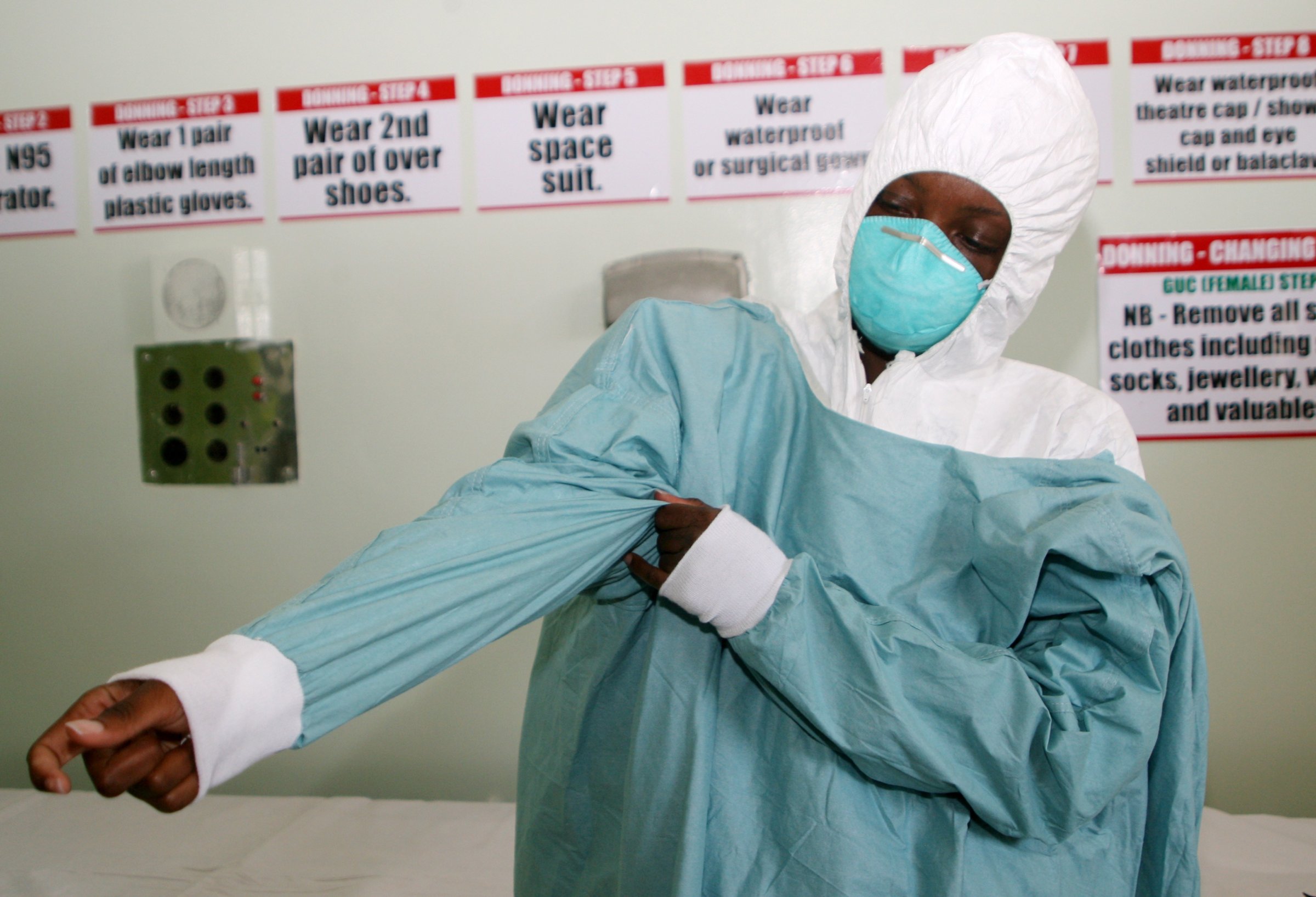
Thomas Duncan, a 42-year-old Liberian citizen, is in serious condition with Ebola in a Dallas hospital. His partner Louise is confined to the Dallas apartment where Duncan became very sick from the virus. Texas health officials have placed her, one of her children, and two nephews in their 20s, under quarantine. This means they have been ordered, under threat of prosecution, by the county not to leave their home or have any contact with outsiders for 21 days. Any exception requires the approval of the local or Texas state health department.
Have government officials done what they need to do to prepare us for the reality of quarantine in a time of Ebola? No. But if there is a deadly communicable disease, they can lock us up for weeks at a time. Personal freedom and liberty are foundational American values. But in the face of a threat of death, liberty can and should be, as we are watching in Dallas, limited so that you can’t move around freely and infect others.
The federal government derives its authority for isolation and quarantine from the Commerce Clause of the Constitution. Under the Public Health Service Act, the Secretary of Health and Human Services and the CDC are authorized to take measures to prevent the entry and spread of deadly communicable diseases from foreign countries into the United States and between states. Ebola surely meets that description. So quarantine at an airport or the harbor is legal, and we should be ready to see it used.
The authority for controlling disease within a state falls to state and local health departments. Individual states, like the Federal government, have broad authority to protect the health of the public in the case of dangerous, communicable diseases such as Ebola.
Quarantine is among the oldest public health activities. It has been used to control diseases for thousands of years. It can be very effective in halting the transmission of disease, if it is scrupulously observed. But, Americans are so committed to freedom that government is only supposed to use quarantine if no other, less-restrictive, option exists.
If Duncan’s family, who may have been exposed to Ebola show no signs of illness after 21 days, they will be declared uninfected. At that point, the quarantine will be lifted – maintaining it would be an unscientifically grounded restriction of liberty.
Twenty-one days is a long time for a family to be stuck inside. During that time, Texas health authorities, who have exerted their authority over this family in the name of the public’s welfare, need to provide the family with food, drink, medical care, and – one hopes – less urgent but still important items like entertainment, educational services (they may need a computer), and financial assistance (rent, electric and water bills will still need to be paid, and anyone who works outside of the home will be unable to get there).
There’s more. Should others also wind up being quarantined, if they have pets, they will need pet food or boarding. If they have babies, diapers. If they use a Laundromat, they will need laundry services. All the things that one normally would obtain in day-to-day interactions for 21 days will need to be provided.
Public health departments these days are underfunded, so if these expenditures are a hardship for Dallas County Health and Human services, emergency funds need to be provided from somewhere to try to keep this family as comfortable and functional as possible as they endure quarantine.
Quarantine poses more hardships on the poor than the rich. Public health authorities can implore an employer to save a quarantined employee’s position for 21 days, but there may be no job awaiting upon release. If being quarantined causes an individual to become unemployed, government has a responsibility to help that person. If you are poor you are going to need more resources to get you through then if you are rich. Before you say, hey, I don’t want to pay, remember they are locked up for our sake more than theirs.
Quarantine isn’t as simple as padlocking the door and putting a police car outside on the street. If it’s going to be used, there’s a lot that needs to be in place. And the public, to support it, needs to understand why it’s being done, under whose authority and what is being done to make it both effective, fair and bearable.
Arthur Caplan, PhD, is the Director of the Division of Medical Ethics at NYU Langone Medical Center. Alison Bateman-House, PhD, MPH, MA, is a Rudin postdoctoral fellow in the Division of Medical Ethics at New York University Langone Medical Center.
More Must-Reads from TIME
- Donald Trump Is TIME's 2024 Person of the Year
- Why We Chose Trump as Person of the Year
- Is Intermittent Fasting Good or Bad for You?
- The 100 Must-Read Books of 2024
- The 20 Best Christmas TV Episodes
- Column: If Optimism Feels Ridiculous Now, Try Hope
- The Future of Climate Action Is Trade Policy
- Merle Bombardieri Is Helping People Make the Baby Decision
Contact us at letters@time.com